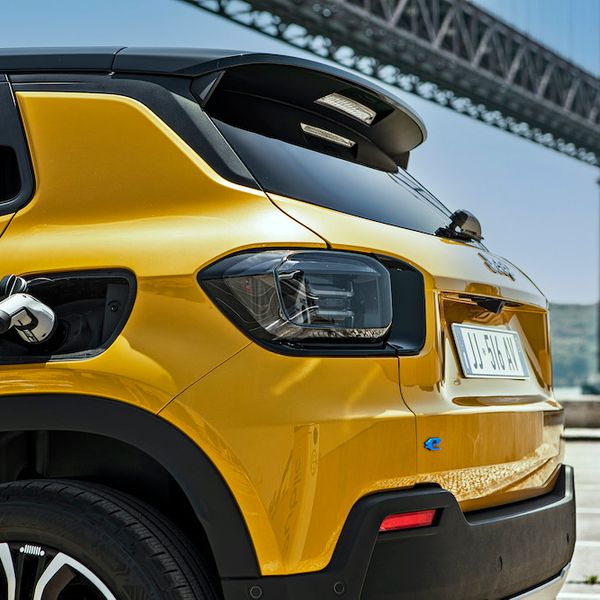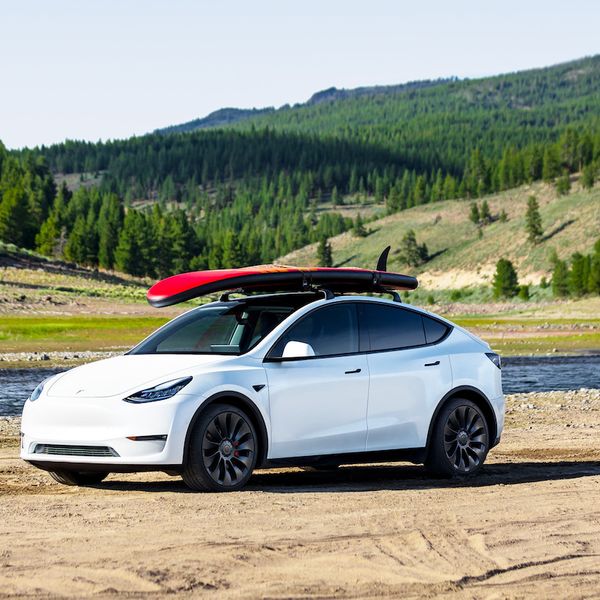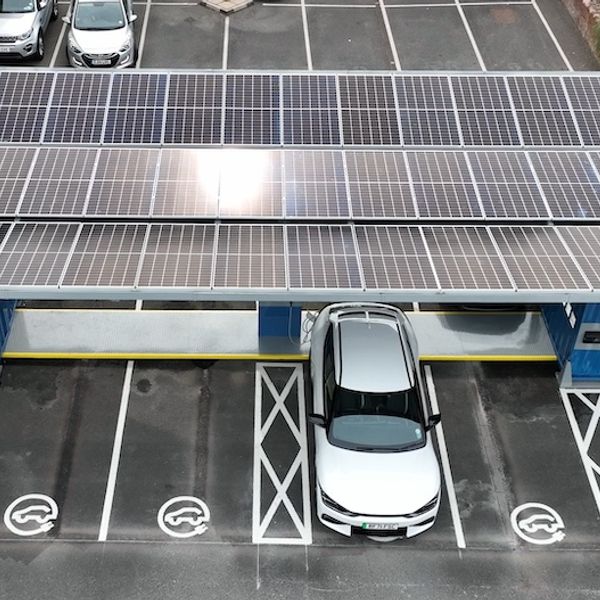We all know that electric cars produce no emissions while driving. We also know that the power that supplies them can come from renewable energy.
BMW aims to minimise the consumption of raw materials, lowering emissions and avoiding waste during the manufacturing process, to limit the impact on the environment as much as possible. Everything is considered from manufacturing process, the sourcing of raw materials and the product lifecycle - aiming to recycle as much as possible.
For example, all of the BMW Group’s production locations worldwide are now supplied with 100% renewable electricity. To make the best use of this energy and help smooth out the peaks and troughs of demand on the electricity grid, high-voltage batteries from electric BMW models which have been scrapped after being damaged in an accident are reused as stationary storage units for wind and solar power.
![BMW i3 driving front]() The BMW i3 is built with 100% renewable electricity
The BMW i3 is built with 100% renewable electricity This system is currently in use at the BMW Leipzig plant, where the electric i3 is built, and will be rolled out to other production facilities as more batteries become available. It’s a perfect demonstration of how BMW makes the best use of resources at the beginning and end of a car’s life.
Just because the power is renewably sourced doesn’t mean it can be wasted though. Independent auditors have confirmed that the greenhouse gases produced by a BMW iX xDrive40 over its lifetime is estimated at approximately 45 percent lower than that of a comparable Sports Activity Vehicle with an internal combustion engine. That includes the production, use and end-of-life disposal. “We will continue to invest in resource-saving technologies and set ourselves ambitious goals for the most sustainable production,” said head of Production Milan Nedeljković.
![]() BMW iX produces 45 percent fewer greenhouse gases over its lifetime
BMW iX produces 45 percent fewer greenhouse gases over its lifetime The BMW Group has already succeeded in lowering the consumption of resources per vehicle produced by more than half between 2006 and 2020. CO2 emissions have been reduced even more significantly – by as much as 78 percent. The aim is to reduce CO2 emissions per vehicle produced by another 80 percent by 2030.
To achieve this, for example, the BMW iX is produced exclusively using regional and directly sourced green power from two hydroelectric power plants. The entire plant, like all BMW Group locations, will also be net carbon neutral from this year.
Other clever sustainability measures range from transport logistics and recycling, up to biodiversity and water management. Plant Dingolfing even has its own wells which meet over 40 percent of its water needs and the BMW Group has already reduced its water consumption by more than 30 percent overall since 2006.
![]() The plant which builds the BMW iX uses water from its own wells
The plant which builds the BMW iX uses water from its own wells But to make a car, BMW has to take more than water out of the ground - and mining minerals for electric cars is certainly a controversial topic. The key commodities use in batteries are cobalt and lithium, and in a BMW they originate exclusively from suppliers who comply with stringent standards as regards ecological and social sustainability. The lithium used in the battery pack of the new i4 is sourced from hard-rock deposits in Australia, for example.
The company is working to minimise or even eradicate the use of these metals altogether. The electric motor from the latest BMW eDrive generation is produced without raw materials from these so-called rare earth metals.
Even the metals used in production are carefully managed. Tungsten, for example, is a super-tough substance which has a huge number of uses. It can be found in the vibration alarm of mobile phones and light bulb filaments, for example, as well as drill and milling bits for the industrial machinery used in producing cars.
![]() The BMW i4's electric motor is produced without rare-earth metals
The BMW i4's electric motor is produced without rare-earth metals The BMW Group has now created a closed-loop material cycle for this unique metal and is collecting old drill and milling bits at its plants in Germany and Austria for recycling. The tungsten gathered in this way will then be used to manufacture new milling and drilling tools. This reduces the amount of tungsten required by seven tonnes per year and reduces energy consumption by 70% and CO2 emissions by more than 60% compared to using virgin material.
These measures have collectively made BMW a leader in environmental responsibility, going above and beyond the legal requirements to help minimise impact on the environment. And yet no compromise has been needed on the quality or engineering of the cars themselves. In fact, the innovative sustainable materials used inside the new generation of BMW models could be considered to be even more beautiful than conventional woods, leathers and fabrics.Knowing your car is created to have the smallest possible impact on the planet should help you enjoy driving your new BMW even more.
![]() Knowing your BMW has been built responsibly should help you enjoy driving it even more
Knowing your BMW has been built responsibly should help you enjoy driving it even more  The BMW i3 is built with 100% renewable electricity
The BMW i3 is built with 100% renewable electricity 
















